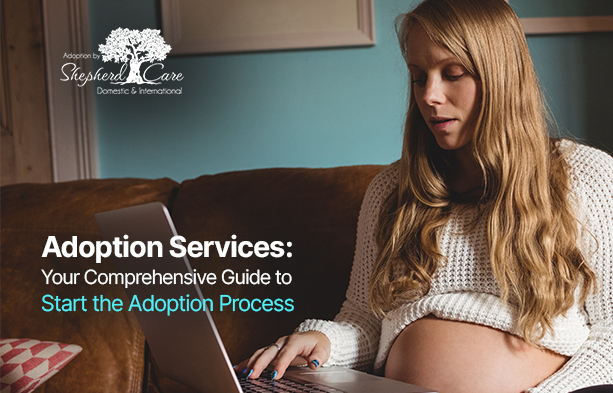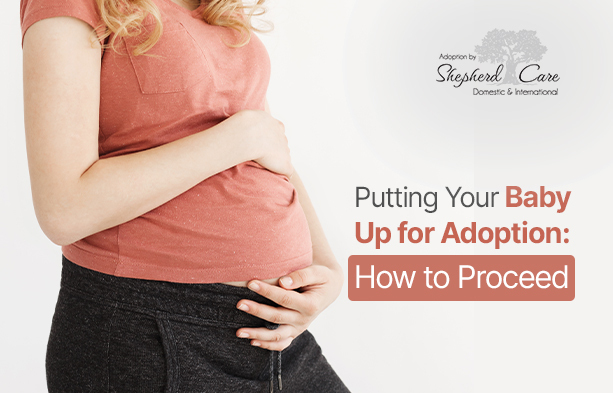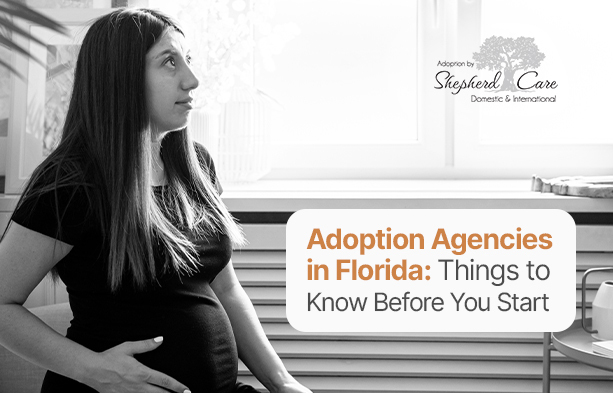Do you ever wonder if adopted children are loved as much as biological children? You’re not alone.
This article from Adoption and Beyond will explore the nature of parent-child bonds and the factors influencing parental love. We’ll also discuss how trust and connection are built, challenges that can arise in adoption, and the importance of nurturing a sense of belonging.
So, let’s dive in and celebrate the unique love found in adoptive families.
Key Takeaways
- The parent-child bond in adoption is based on emotional investment and shared experiences, and the love received by adopted children is profound and sincere.
- Adoptive parents form the same emotional bonds as biological parents, and the emotional connection is built on trust, care, and unconditional love.
- Factors such as the age at adoption, the level of support and resources available to adoptive parents, and personal experiences and beliefs can influence parental love and the building of trust and connection.
- Overcoming challenges in adoption requires time, patience, and a strong support system, and nurturing a sense of belonging and bonding with adoptive parents is essential for the emotional well-being and security of adopted children.
The Nature of Parent-Child Bonds
In your parent-child bond, the love and connection formed isn’t determined by biological ties but rather by the depth of emotional investment and shared experiences. It’s a bond that transcends genetics and is built on unconditional love and support.
Adopted children sometimes wonder if their parents love them as much as they love a biological child. Rest assured, the love adopted children receive is just as profound and sincere.
Parent-child bonds are rooted in the emotional connection that grows over time. Adoptive parents chose to bring a child into their lives, to love and care for as their own. This decision wasn’t made lightly. It was made with a deep desire to create a family and provide a safe and loving environment where a child can thrive. The love they have isn’t defined by biology but by the strength of their commitment.
Shared experiences play a significant role in strengthening the parent-child bond. From the first moment they held their child, to the countless memories created together, each moment has contributed to the depth of their connection. Adoptive parents are there to celebrate a child’s achievements, comfort in times of sadness, and guide through life’s challenges. These shared experiences have created a unique and unbreakable bond between the child and the adoptive parents.
Remember, parents’ love isn’t limited by biology. Their love is limitless and unconditional, rooted in the emotional investment they’ve made. The bond they share with the child is a testament to the power of love that knows no boundaries.
Embrace the love and connection adoptive parents have with their child, knowing that it’s just as strong and meaningful as any biological bond.
Emotional Attachment in Adoptive Families
Now, let’s explore the emotional attachment in adoptive families.
Do adoptive parents form the same emotional bonds with their children as biological parents do?
How does adoption impact the attachment process?
And ultimately, can adoptive parents love their children just as much as biological parents?
These are the questions we’ll delve into in this section.
Same Emotional Bonds
The same emotional bonds are formed with adopted children as with biological ones. The love and attachment for an adopted child are just as strong and deep as the love for a biological child. The emotional connection developed with an adopted child is built on trust, care, and unconditional love. This bond grows stronger over time, navigating the joys and challenges of parenting together.
The adopted child becomes an integral part of the family, and parents become their biggest advocates and sources of support. The emotional bonds shared with an adopted child are rooted in a deep sense of belonging, acceptance, and love. This bond transcends biology and is based solely on the power of love and connection.
Adoption and Attachment
Adoptive families form strong emotional attachments with their children through the process of adoption. When you adopt a child, you open your heart and home to them, creating a safe and loving environment where the bond between parent and child can flourish.
Attachment is a natural and essential part of forming a family, regardless of biological connection. Through consistent love, care, and nurturing, adoptive parents create a secure attachment with their children, providing them with a sense of belonging and emotional stability. It’s important to understand that attachment may take time and patience, as each child’s experience and background are unique.
Love for Adoptees?
Creating a strong emotional attachment with your adopted child is essential for them to feel loved and secure in your family. It’s important to understand that love for adoptees is just as deep and meaningful as the love for biological children.
Here are three ways to foster emotional attachment and show your love for your adopted child:
- Spend quality time together: Engage in activities your child enjoys, such as playing games, reading books, or simply talking and listening to them. This dedicated time helps build trust and connection.
- Offer reassurance and support: Show your child you’re there for them by offering comfort during difficult times and celebrating their successes. Let them know that they’re loved unconditionally.
- Create a sense of belonging: Help your child develop a strong sense of belonging by involving them in family traditions, celebrating their cultural heritage, and creating a safe and nurturing environment.
Factors Influencing Parental Love
A variety of factors often influence parental love for adopted children. As a parent, you may wonder what factors can impact the love you feel for your adopted child. It’s important to remember that every family is unique, and these factors may vary from one family to another. However, some common influences can shape parental love for adopted children.
One significant factor is the age of the child when adopted. If adopted as an infant, a bond between parent and child may be established early on. Love will grow naturally over time. On the other hand, if adopted as an older child, it may take more time to develop a strong emotional connection. Building trust and creating a sense of security can be crucial in nurturing parental love in this case.
Another factor that can influence parental love is the level of support and resources available to you as an adoptive parent. Access to counseling, support groups, and educational resources can help you navigate the unique challenges of adoption. Feeling well-supported can enhance your ability to love and care for your adopted child.
Your own personal experiences and beliefs also play a significant role in parental love. Your values, cultural background, and upbringing can shape your expectations and understanding of being a parent. It’s important to be aware of any biases or preconceived notions you may have and to challenge them to create a loving and accepting environment for your adopted child.
Building Trust and Connection
Building trust and connection is essential for nurturing a loving relationship once you have established a strong emotional connection with your child. This process may take time and patience, but it’s crucial for creating a safe and secure environment for your child. Here are three ways to build trust and connection with your adopted child:
- Consistency: Consistency is key in building trust with your adopted child. Stick to routines and schedules, as this provides stability and predictability. Show up for them consistently, both physically and emotionally. Be there for them when they need you, and follow your promises. By being reliable and consistent, you show your child they can trust you to be there for them.
- Active Listening: Take the time to really listen to your adopted child. Show them their thoughts, feelings, and experiences are valid and important. Practice active listening by giving your full attention, making eye contact, and responding empathetically. You’re building a strong foundation for trust and connection by truly hearing and understanding your child.
- Respect Boundaries: Respecting your adopted child’s boundaries is crucial in building trust. Understand that your child may have experienced trauma or loss and may need extra time and space to feel comfortable. Allow them to set their own pace and respect their personal boundaries. By doing so, you’re showing your child that their feelings and needs are respected and valued.
Building trust and connection with your adopted child is a journey that requires patience, understanding, and compassion. By implementing these strategies, you can create a safe and loving environment where your child can thrive and feel truly loved. Remember, building trust takes time, but the rewards are immeasurable.
Overcoming Challenges in Adoption
To overcome the challenges in adoption, you must be prepared to face various obstacles and work through them with determination and resilience. Adoption can bring both joy and difficulties, but with the right mindset and support, you can navigate these challenges successfully.
One of the first hurdles you may encounter is the adjustment period. It takes time for both the child and the adoptive parents to acclimate to their new family dynamic. The child may have experienced trauma or loss, and it’s crucial to provide them with a safe and nurturing environment to heal and grow. Patience and understanding are key during this phase.
Another challenge you may face is the uncertainty surrounding the child’s background and genetic history. Without this information, it can be challenging to address any potential health or behavioral issues that may arise. It’s essential to work closely with professionals, such as doctors and therapists, to ensure the child’s well-being and provide them with the necessary support.
Building a strong support system is also vital in overcoming challenges in adoption. Connect with other adoptive parents or join support groups where you can share your experiences, seek advice, and find comfort in knowing that you aren’t alone. These networks can offer valuable insights and guidance throughout your adoption journey.
Lastly, it’s crucial to communicate openly and honestly with your child about their adoption story. They may have questions or emotions that they need to process, and creating a safe space for them to express themselves is essential. Encourage open dialogue and provide reassurance that they’re loved unconditionally.
Adoption and Unconditional Love
As an adoptive parent, your unconditional love for your child transcends biology and forms the foundation of your unique bond. Your love knows no boundaries and isn’t confined by genetics. Here are three reasons why adoption and unconditional love go hand in hand:
- Chosen with Love: When you chose to adopt, you consciously decided to open your heart and home to a child who needed love and care. Your love for your child is deliberate and intentional, showing them they’re wanted and cherished. This sense of being chosen instills a deep sense of security and belonging in your child, allowing them to thrive in a nurturing environment.
- Unwavering Support: Adoptive parents often go to great lengths to provide their children with the support they need to thrive. From attending therapy sessions to advocating for their child’s needs, your unwavering commitment shows your child that you’re there for them no matter what. Your love and support become a steadfast anchor in their lives, providing them safety and stability.
- Building Trust: Adoption can come with its own set of challenges, as your child may have experienced trauma or loss before joining your family. You’re building a foundation of trust by consistently showing up for your child and meeting their emotional needs. Your unwavering love allows your child to heal, grow, and learn to trust again, paving the way for a healthy and secure attachment.
Nurturing a Sense of Belonging
To nurture a sense of belonging in adopted children, focusing on acceptance within the family is essential. By openly embracing them as part of the family unit, adoptive parents can help their children feel valued and loved.
Additionally, creating a loving environment where open communication and emotional bonding are encouraged can further strengthen the sense of belonging for adopted children.
Acceptance in the Family
Make sure you actively nurture a sense of belonging and acceptance in your family towards your adopted child. Creating a safe and loving environment is crucial for their emotional well-being and healthy development. Here are three ways to foster acceptance in your family:
- Show unconditional love: Let your adopted child know that your love for them is unwavering, regardless of their biological origins. Embrace and celebrate their unique identity, making them feel valued and accepted.
- Encourage open communication: Create a safe space where your adopted child feels comfortable expressing their thoughts and emotions. Listen attentively without judgment, validate their experiences, and provide support when needed.
- Foster connections: Help your adopted child build relationships with extended family members, friends, and other adoptive families. These connections provide a sense of community and belonging, reinforcing their identity and self-worth.
Bonding With Adoptive Parents
Nurture a sense of belonging and strengthen your bond with your adopted child by actively engaging in activities that promote connection and family unity.
Building a strong bond with your child is crucial for their emotional well-being and sense of security. Create a safe and loving environment where your child feels valued and accepted.
Enjoy regular family activities such as game nights, family outings, or cooking together. Take time to listen and communicate with your child, allowing them to express their thoughts and feelings without judgment. Show affection and provide physical comfort through hugs, cuddles, and gentle touches.
Establishing routines and traditions can also create a sense of stability and belonging. Remember, your love and support are vital in helping your adopted child feel a deep sense of connection and belonging within your family.
Creating a Loving Environment
You can create a loving environment for your adopted child by fostering a strong sense of belonging and connection within your family. Here are some ways to nurture that sense of love and safety:
- Offer unconditional love: Let your child know that your love for them is unwavering, no matter their background or history. Show them that they’re accepted and cherished just as they are.
- Create rituals and traditions: Establishing family rituals and traditions can help your child feel a sense of belonging and stability. Whether it’s a weekly game night or an annual vacation, these shared experiences can strengthen your family bond.
- Encourage open communication: Create a safe space for your child to express their thoughts and feelings without fear of judgment. Listen actively, validate their emotions, and respond with empathy and understanding.
Celebrating Differences in Adoptive Families
How can adoptive families celebrate the unique differences that make them special? Adopting a child is a beautiful and rewarding experience, and it’s important to honor and celebrate each family member’s diverse backgrounds and experiences. By embracing these differences, adoptive families can create an environment of love, understanding, and acceptance.
One way to celebrate these differences is by acknowledging and exploring your child’s cultural heritage. Learning about their birth culture, traditions, and customs can help your child develop a strong sense of identity and belonging. Encourage open conversations about their heritage and provide opportunities for them to connect with their roots, such as participating in cultural events or joining cultural organizations.
Another way to celebrate differences is by openly discussing the adoption journey with your child. Make sure they understand that their adoption story is a part of who they are and that it’s something to be proud of. Share their unique adoption story with them and let them know that they’re loved and valued for who they are.
Creating a safe and inclusive environment is crucial in celebrating differences within adoptive families. Encourage open and honest communication, where everyone’s thoughts and feelings are respected. Emphasize the importance of empathy and understanding, teaching your child to appreciate the perspectives and experiences of others.
Lastly, celebrate the individual strengths and talents of each family member. Encourage your child to explore their passions and interests, and provide opportunities for them to develop their talents. By supporting their individuality, you’re showing them that their differences aren’t only accepted but celebrated.
The Impact of Open Adoption on Love
Exploring the impact of open adoption on love, it’s important to understand the dynamics that can shape the relationships between adoptive parents and their children. Open adoption refers to a type of adoption where the birth parents and adoptive parents have some form of ongoing contact and communication. This can have a significant impact on the love that’s shared within the adoptive family.
Here are some ways in which open adoption can influence the love between adoptive parents and their children:
- Building Trust and Connection: Open adoption allows for the development of trust and connection between the birth parents, adoptive parents, and the child. This openness can create a sense of security and belonging, which fosters a deeper bond and love between all parties involved.
- Honoring Identity and Heritage: Open adoption provides the opportunity for adoptive parents to embrace and celebrate their child’s unique identity and heritage. This acknowledgment of their background and culture can help the child feel loved and accepted, allowing their love for their adoptive parents to grow.
- Supporting Emotional Well-being: Open adoption can provide ongoing emotional support for both the birth parents and the adoptive parents. This support helps create a nurturing environment for the child to feel loved and valued. The emotional well-being of all involved contributes to the overall love and happiness within the adoptive family.
Fostering a Loving and Supportive Environment
To foster a loving and supportive environment for your adopted child, providing equal parental love is crucial. Treat your child with the same level of affection, care, and attention as you’d a biological child.
Additionally, focus on nurturing their emotional well-being by creating a safe space for them to express their thoughts and feelings. Show them unconditional love and acceptance, allowing them to feel valued and cherished as a family member.
Equal Parental Love
You can foster a loving and supportive environment by ensuring equal parental love. Here are three ways to create such an environment:
- Show unconditional love: Embrace your adopted child with open arms, letting them know that they’re worthy of love, just like any biological child. Let them feel safe and secure in your love, knowing that you’ll always be there for them.
- Celebrate their uniqueness: Recognize and appreciate the individuality of your adopted child. Encourage their interests, talents, and dreams, and let them know that their uniqueness is valued and cherished.
- Create a sense of belonging: Help your adopted child feel like an integral part of the family. Involve them in family activities, traditions, and decision-making processes. Make sure they feel included, loved, and accepted.
Nurturing Emotional Well-Being
How can you ensure that your adopted child’s emotional well-being is nurtured in a loving and supportive environment?
Creating a safe and nurturing environment is crucial for your adopted child’s emotional well-being. Start by establishing open lines of communication where your child feels comfortable expressing their thoughts and feelings without fear of judgment. Show empathy and validate their emotions, making them feel heard and understood.
Provide consistent love and support, offering praise and encouragement when they achieve milestones or face challenges. Foster a sense of belonging by creating family traditions and rituals that make your child feel included and valued. Encourage healthy relationships with peers and family, as social connections are vital for emotional well-being.
Unconditional Love and Acceptance
Create a loving and supportive environment for your adopted child by demonstrating unconditional love and acceptance. Show them they’re valued and cherished just as much as any biological child. Make them feel safe and secure by providing a stable and nurturing home. Be patient and understanding, allowing them to express their thoughts and emotions without judgment.
Providing unconditional love and acceptance instills a sense of belonging and worth in your adopted child. They’ll feel safe to open up, trust, and develop a strong bond with you. This loving environment will help them thrive emotionally, mentally, and physically. Your acceptance will show them they deserve love, regardless of their biological origins.
You can create a loving and supportive family where they can grow and flourish together.
Summary
Whether a child is adopted or biological, the love and bond between parents and their children isn’t determined by genetics.
Adopted children are loved just as much as biological children, as love is built on emotional attachment, trust, and connection.
Adoptive families work hard to overcome challenges, nurture a sense of belonging, and celebrate the unique differences within their family.
The impact of open adoption can also contribute to a loving and supportive environment for all involved.






